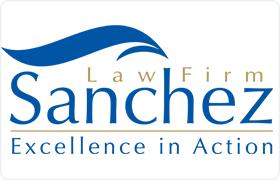 Edcouch Real Estate Lawyers, Texas
Edcouch Real Estate Lawyers, Texas
Sponsored Law Firm
-
 x
x

Click For More Info:
-
Sanchez Law Firm
150 W. Parker Rd. 3rd Floor Houston, TX 77076» view mapReal Estate Excellence In Action
We advocate for our clients in and out of court. When you and the system meet head on, you need an attorney who is experienced, credible, and active.
800-785-3351
Lawyers
1-2 of 2 matches
Personal Injury, Litigation, Real Estate, Construction
Criminal, Family Law, Wills, Immigration, Commercial Real Estate



 Benjamin Sanchez Houston, TX
Benjamin Sanchez Houston, TX Practice AreasExpertise
Practice AreasExpertise